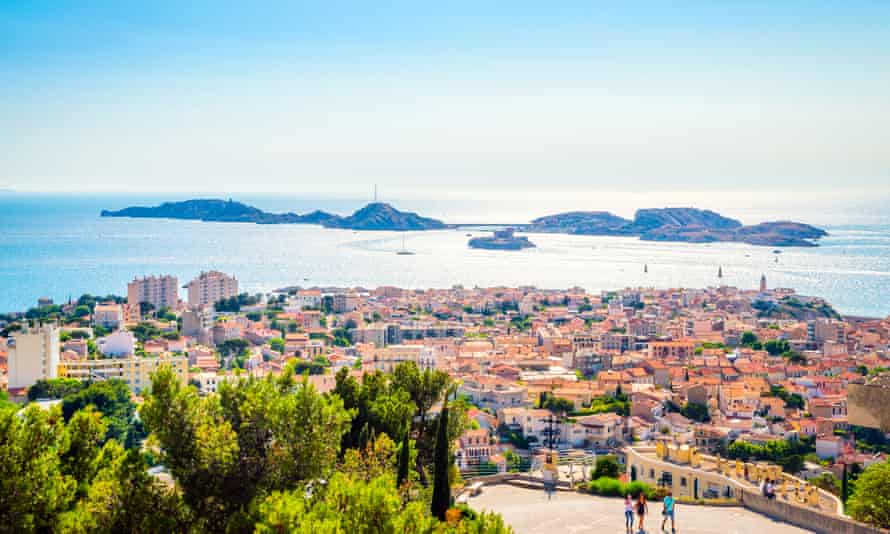
Only a vibrant, rebellious town like Marseille could do it: stand up to bourgeois Lyon, Bordeaux and even Paris, the established gourmet destinations, and imagine a new and different French menu, one that fits our time and forges a path forward.
This southern port city is a lot cheaper and sunnier than Paris, but until recently had no fine dining scene – all the good food was eaten at home or in a pizzeria. But over the past five to 10 years, lots of young cooks with diverse food heritages have moved to Marseille to open restaurants and create something new.
Local, traditional chefs reacted to the “invasion” and gentrification by reaffirming their approach, with a newfound quality and creativity. Combine the energy of the new chefs with the passion and knowledge of the more traditional ones, and suddenly there is much better food all across town. In Marseille, most of us are migrants, and here, more than anywhere else in France, food is memory, power, and freedom of speech – an easy way to create connections between us all.
Now, Michelin is finally showering stars across the city, on Alexandre Mazzia (born in Democratic Republic of the Congo) and Coline Faulquier (from Burgundy) at Restaurant Signature. And rightly so. But most of the city’s gems remain off the guides’ radars, and are inexpensive. Affordable, creative and inclusive, with influences from all corners of the world and many thriving female chefs – that is Marseille’s incredible food scene, and the culinary future of France.
I spent the past two years eating my way across my home town to meet the pioneers of this delicious revolution, and wrote a book about it: Marseille Cuisine Le Monde. Here, I invite some of them to your table.
Lilian Gadola at Limmat
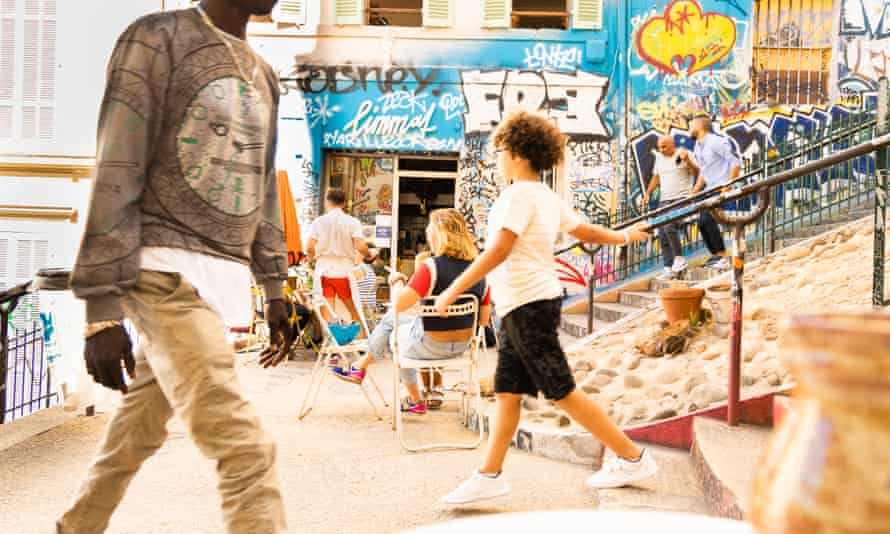
Lilian grew up in a lakeside village near Zürich, came to Marseille in 2017 and chose to open her fish and vegetarian restaurant Limmat where no Marseillais would have dared: on the steep steps running from Cours Julien towards Noailles.
“I like Marseille for its diversity, joyous atmosphere, laid-back people, rich culture and history, and I adore the sea, the sun, the sky, the light,” she says. “The food scene here is blooming! The cuisine is young, more and more political, committed to sustainability, and I really enjoy the fact that we are many female chefs.”
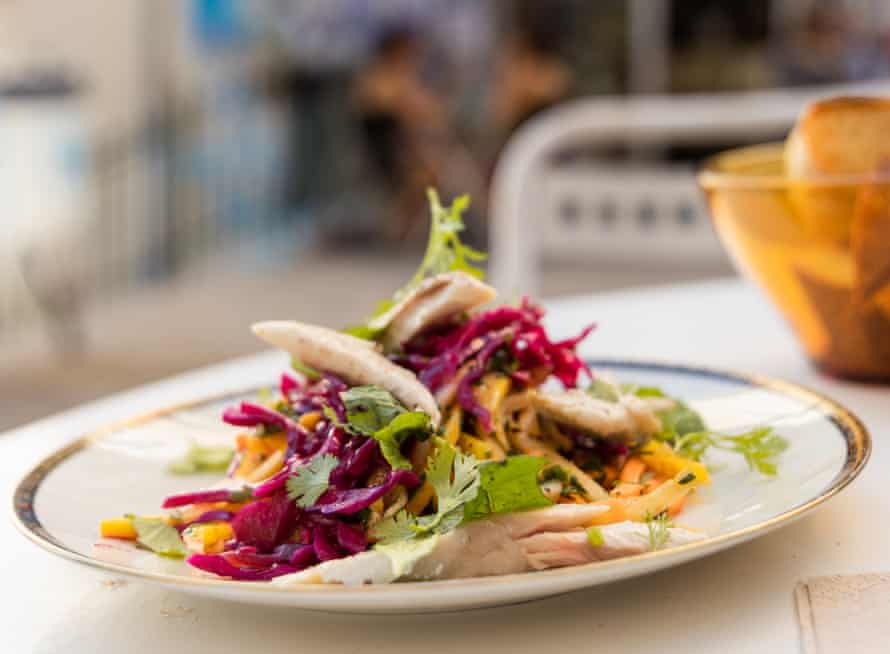
One of her favourite spots is Brûlerie Möka, for “high-quality coffee de terroir with a conscience, a cosy atmosphere and a passionate team”. Marseille is where coffee first arrived in France, and here barista Iris Michalon has created an ethical and sustainable coffee place next to her roastery in the Boulevard Chave area.
Lilian also likes La Fabriquerie in Saint-Victor, next to Les Catalans beach. “Two chefs and a sommelier prepare the best picnic to take away.”
Chef Hugues Mbenda and Mathilde Godart at Libala
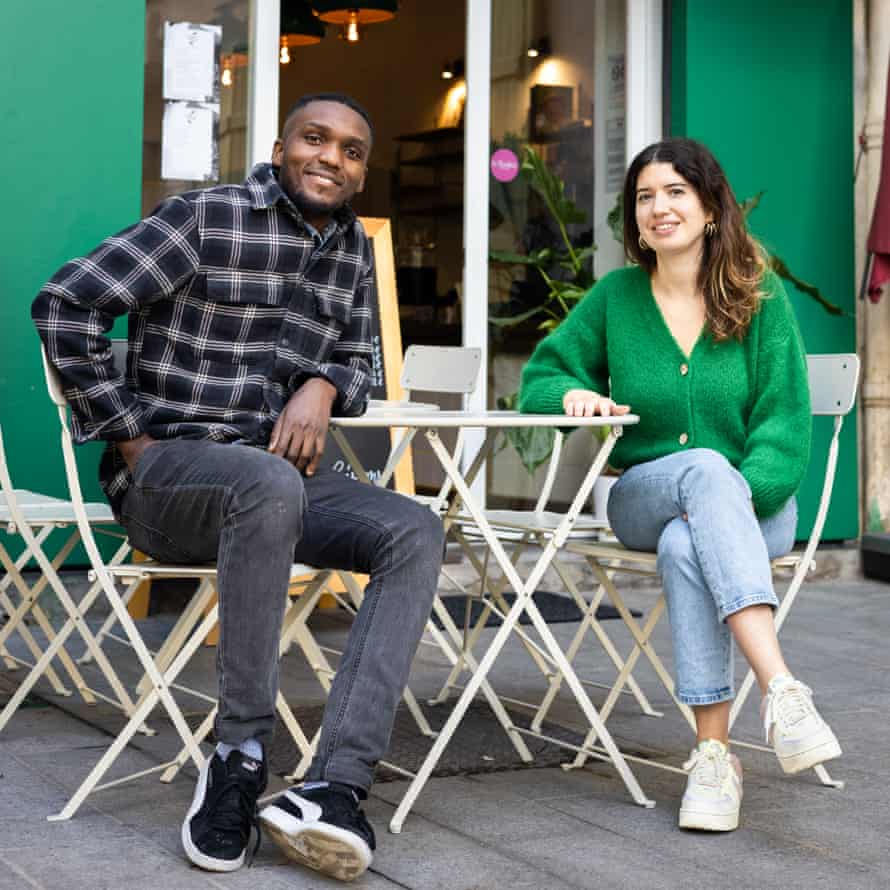
Hugues moved from Kinshasa in the Democratic Republic of the Congo to a suburb of Paris at the age of nine, later attending a French culinary school and training in Michelin-star restaurants. His first restaurant in Marseille was in the Noailles district, AKA the “belly of Marseille”, which he moved to the glamorous Maison Montgrand hotel, though he is about to leave there. Hugues’s unique style is French mixed with his Congolese roots and inspired by his ongoing research into west African dishes and ingredients.
Recently, Hugues and his wife, Mathilde, opened Libala, an African street-food canteen where gourmets stop for dishes such as sweet potato waffles with cumin, or pulled beef on brioche with coriander. “Marseille is like a village and we love that,” says Hugues. “It’s perfect for a young couple with a baby and lots of projects. The surrounding energy makes you think everything is possible.”
They like to shop at Tam-Ky, a cult Asian-African grocery in the town centre run by 10 Vietnamese siblings with strong Marseille accents. The family arrived in France in 1979 and the children grew up in the earthy northern districts of Marseille. “It’s our favourite food shop,” says Hugues, “where we buy all the ingredients from my childhood. Try the niébé beans. We cook our falafels with them at Libala.”
They also recommend Oh Faon!, “a new adventure in cake-land”. There, Jérôme Raffaelli and Kevin Yau wanted to create vegan pastries that everybody would crave, and they succeeded. “Try their sticky mango cake, made with coconut mousse, mochi, mango puree and coconut crumble.”
Chef Marie Dijon at Caterine
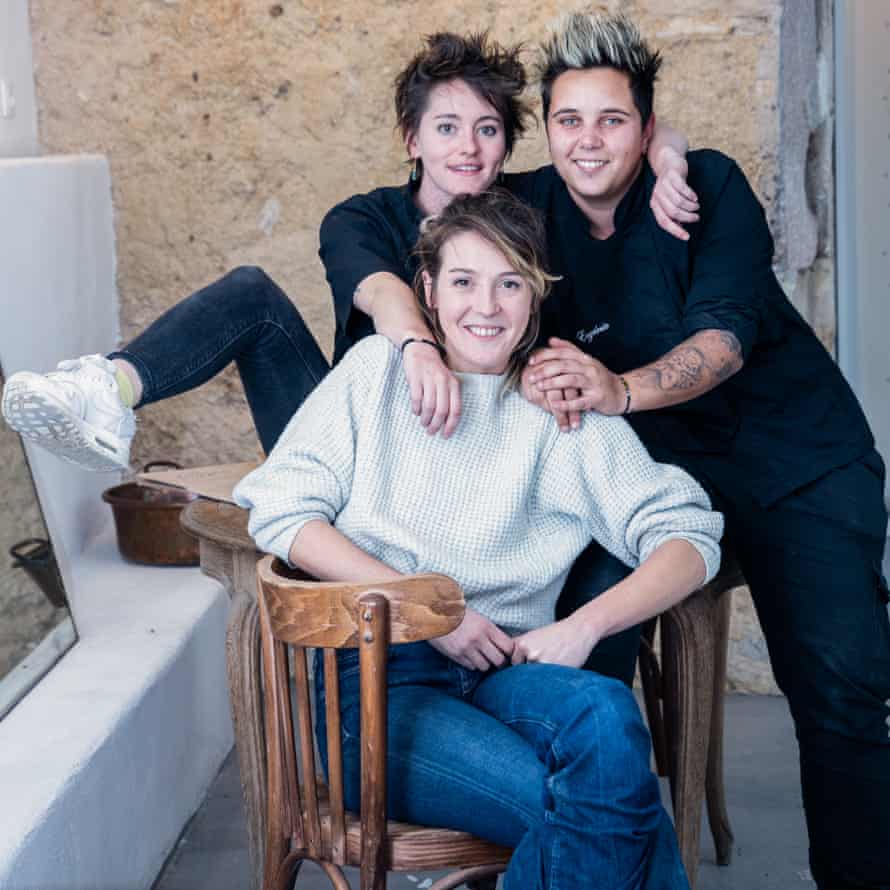
“I love this agitated and colourful harbour because it’s a true Mediterranean city,” says Marie Dijon, one of Marseille’s homegrown, up-and-coming talents. After working in several trendy kitchens around town, she opened her own spot, Caterine, mid-pandemic with two girlfriends. It’s near the new foodie street, Boulevard Chave, where she grew up. To ensure that the fantastic food is affordable, they spend money only on ingredients and kitchen staff – there are no waiting staff. You order food at the counter, pick it up when it’s ready, eat, and then clean your table. But the mix of flavours in your mouth is insane.
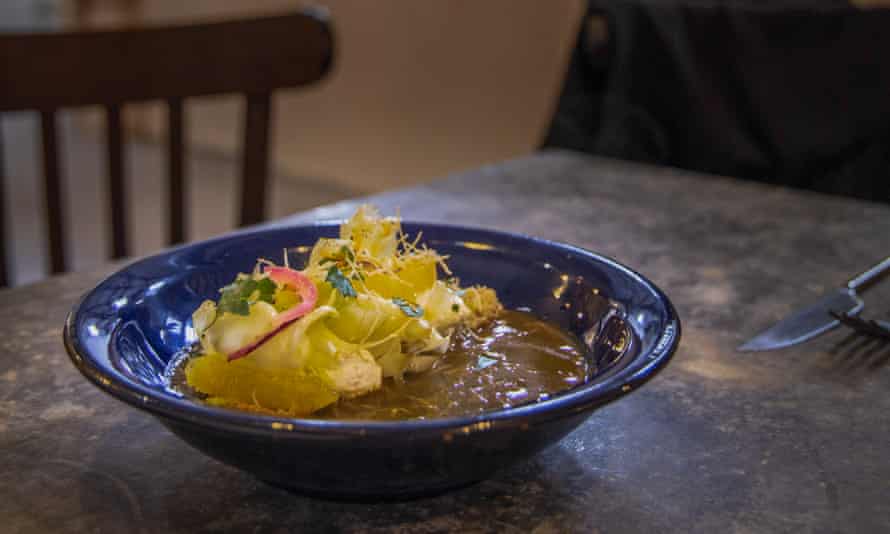
Marie’s values are shared by other female chefs in the city, such as Laëtitia Visse at meat-focused restaurant La Femme du Boucher, Noémie Lebocey at Les Eaux de Mars, Sarah Chougnet-Strudel at Regain and Charlotte Baldaquin at Les Grandes Tables de la Criee. They all adhere to sustainable practices, zero waste, and sourcing from local urban farms – which all have a social impact in Marseille. And they have no problem shaking up their grandmothers’ recipes. “Marseille’s culinary scene was really behind until new chefs with an identity as strong as the city chose to come here,” says Marie.
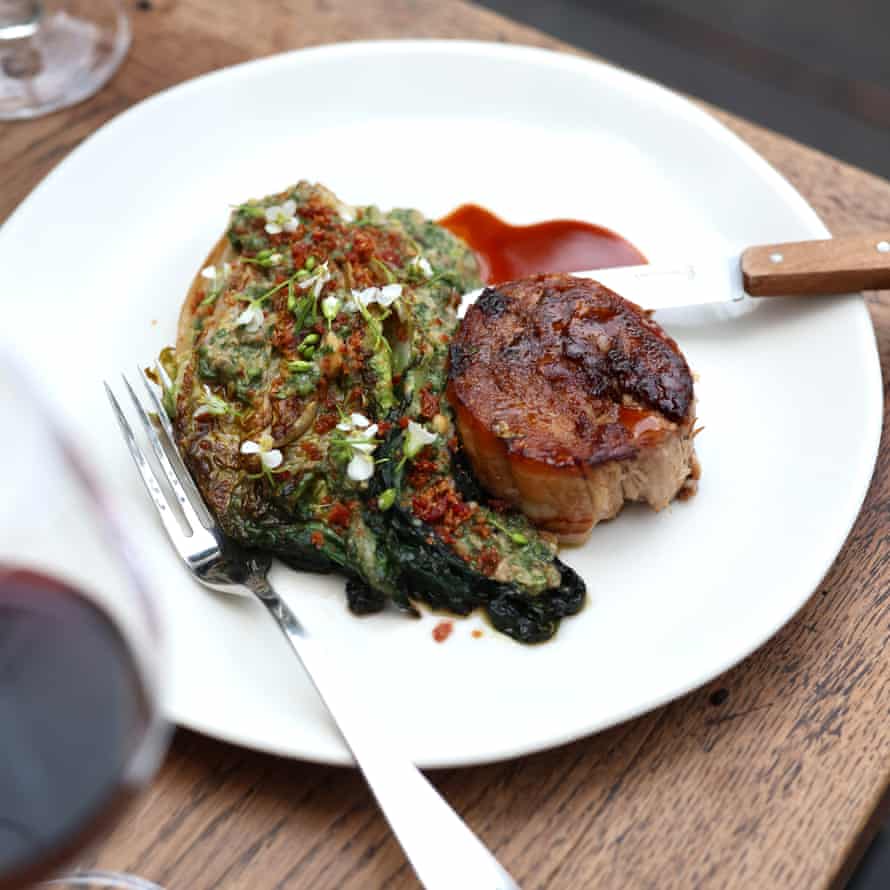
Her top tip: “Sunday in Les Goudes [a seaside neighbourhood near the Calanques] is a must-do. Go early by bus, bike or boat, but don’t drive. Walk to Cap Croisette, “the end of the world”, swim, stare at the beautiful scenery and Maïre island, and then go eat fresh fish at L’Auberge du Corsaire Chez Paul, where tables are spread on the little old harbour. Book your table ahead, and be patient. For more fish options, try Le Grand Bar des Goudes, Restaurant Tabi on the city coast road, or Chez Madie – Les Galinettes at the Old Port.
Restaurateur Mustapha Kachetel at Le Femina
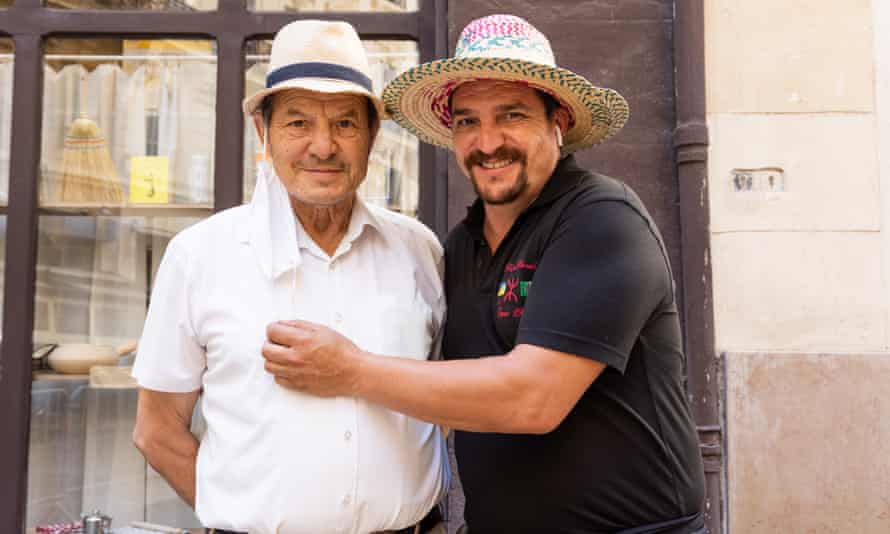
Marseille hosts a couscous festival, Kouss-Kouss, in late August each year, when dozens of restaurants create a special couscous for the occasion, whether their usual cuisine is north African or not. The best couscous in Marseille, though, is at Le Femina chez Kachetel. Founded by a family of Algerian berbers from the Kabylia region, it celebrated its 100-year anniversary last year. It’s right in the middle of Noailles, and Mustapha knows everything and everyone. His couscous stands out because it is made with barley, not wheat.
Mustapha recommends Pastels World: “In Noailles we all talk a lot, including with the newcomers like L’Idéal and La Mercerie. When someone opens a restaurant, they come to eat here or I go to eat at theirs. These new restaurateurs have developed Noailles’ potential and are attracting a wider clientele to our streets. Among them are a very nice, hard-working young couple, Sonia and Raphaël, who cook Senegalese pastels – half-moon pastries filled with spiced fish or meat.”
Chef Najla Chami and Serje Banna at Mouné
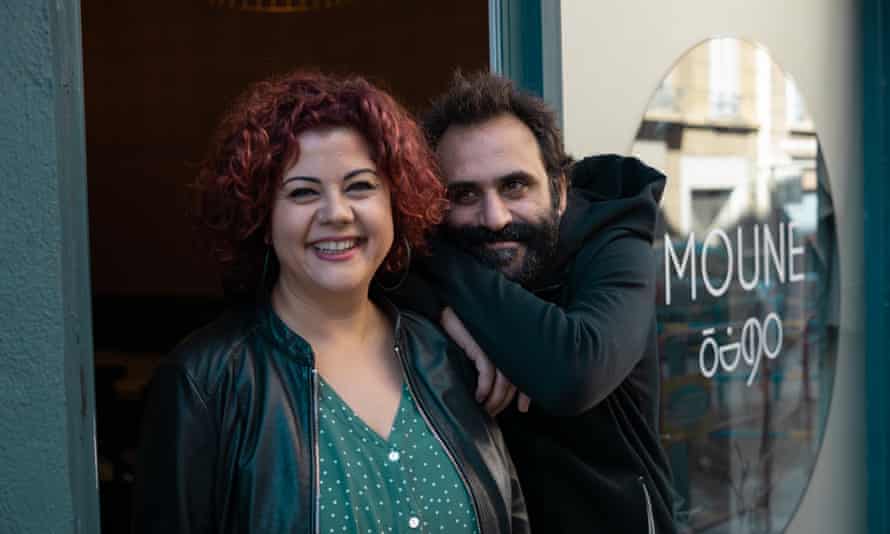
Lebanese chef Najla trained as a film director; her husband Serje Banna is a chatty Armenian-Lebanese former DJ who now does front of house. They moved here from Beirut seven years ago. “Marseille is like a mirror image of Beirut on the other side of the Med,” says Najla. “It has a piece of everybody’s home, and the word ‘tranquille’ [chill], used all day by the Marseillais, sums it up. It’s a city that haunts you, sticks to your skin and heart. You either love it or you hate it.”
Najla’s cuisine at Mouné is a modern take on flamboyant Lebanese food culture, Ottolenghi style. Located between rue Sainte and rue Vauban, it’s perfect for a night out, with post-dinner drinks at nearby Bar Gaspard.
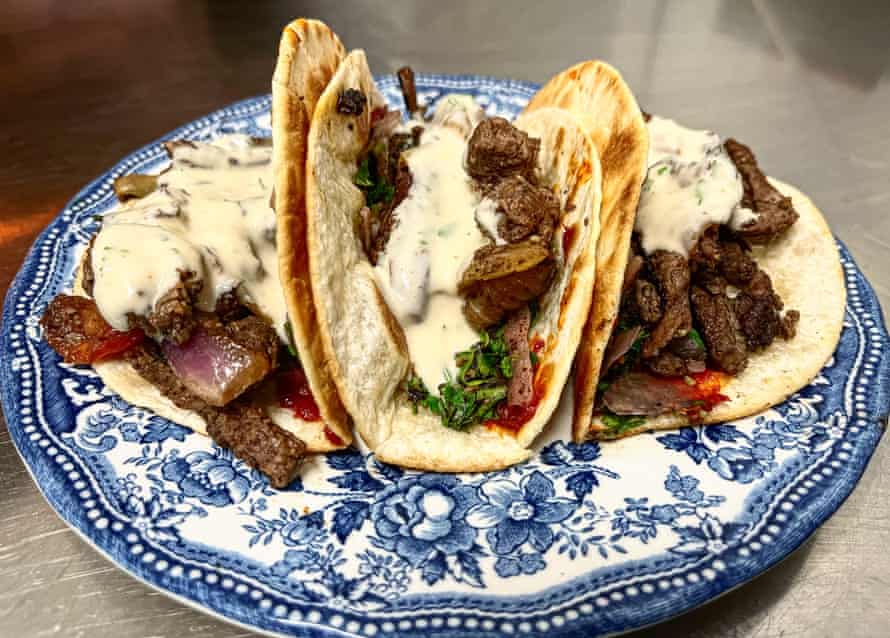
The couple recommend La Poissonnerie du Golfe, the oldest fish shop in town, where they source all the fish for their restaurant. “It’s tiny, smaller than your living room, and owned by two female fishmongers, Laurence Ciccarelli and her niece, Justine. The fish and seafood are super-fresh, seasonal and tasty. Try their oysters and sea urchins, or things you’ve never eaten before.”



